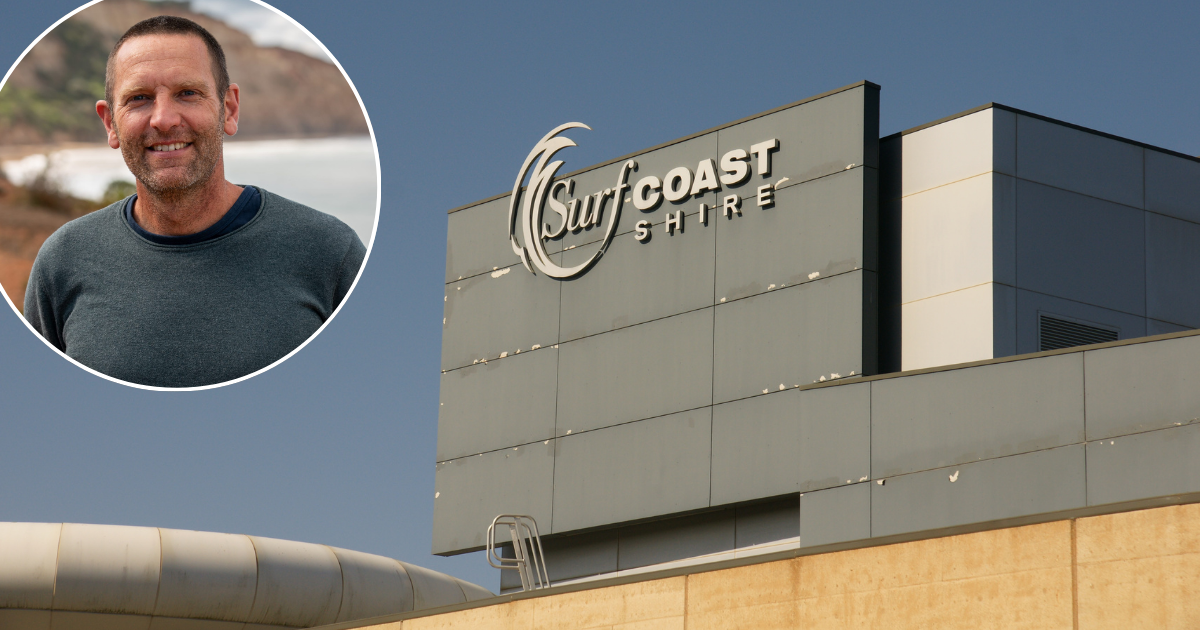Paper highlights impact of pumping

Alcoa's former brown coal mine is being filled with water pumped from an aquifer. Photo: FACEBOOK/GUY WARD
ALCOA’S decades of pumping groundwater has negatively affected water quality in the Anglesea River and estuary, according to a new report from a team of University of Melbourne scientists.
The discussion paper led by Professor Ralf Haese of the university’s School of Geography, Earth and Atmospheric Sciences presents data explaining the now-permanent acidic state of the estuary and major reductions of between 80-90 per cent of flows in Salt Creek – one of the river’s main tributaries – and also reviews the regional geology and groundwater systems.
“We argue groundwater extraction as part of the mining and power plant operation has lowered the groundwater level far beyond the mine … and has negatively impacted the water quality in the Anglesea River and its estuary,” Prof. Haese said.
Prof. Haese received an assurance from the Department of Environment, Land, Water and Planning that the paper would be considered when Alcoa lodges an application for a more permanent water licence in the future and would submit the study to an independent expert panel.
“We want to receive an argued case from the regulator and the expert panel in response to our hypothesis and arguments,” he said.
“Before we jump to conclusions on what needs to change, we need to understand the underlying cause of the concerning observations.”
Alcoa is now more than halfway through a 12-month trial to test the feasibility of filling its vast former coal pit with water pumped from an aquifer beneath the site, and recently announced plans to resume pumping this month after a pause to review testing data and a conclusion it was “having no environmental impact”.

The pit is estimated to be at more than 15 per cent of its proposed full volume, but prospective future tenants the Eden Project have set a prerequisite of having the void half-filled by 2024 if they are to take over the site.
“We have confidence in the test results that indicate it (the pumping trial) has not adversely impacted the local environment,” Eden Project International chief executive officer David Harland said.
Southern Rural Water (SRW) approved a variation of Alcoa’s mining licence in 2020 to facilitate the trial, and will again be the regulator when the company seeks a more permanent water licence that will be required to meet the goal of half-filling the mine.
“There is no evidence that historic groundwater extraction from Alcoa has caused environmental problems in the Anglesea River and the estuary,” an SRW spokesperson said.
Environment Victoria (EV) has queried why Alcoa was not being held to similar rehabilitation processes as other former coal mines and
power stations in the state.
The state government announced last month that the former Hazelwood power station and associated coal mine must undergo an Environmental Effects Statement (EES) in order to demonstrate its plan to turn the former pit into a lake did not pose an unacceptable environmental risk to water resources.
“We think all large mine rehabilitation should go through an EES,” EV’s acting campaigns manager Greg Foyster said.
“Unfortunately, this is not always the case and the Hazelwood EES was only granted after significant campaigning from locals in the Latrobe Valley.”
A spokesperson for the Victorian government said it “will support the best possible rehabilitation outcome for the former power station and coal mine to benefit Anglesea and the broader community and consider all relevant factors including environmental impacts”.

















